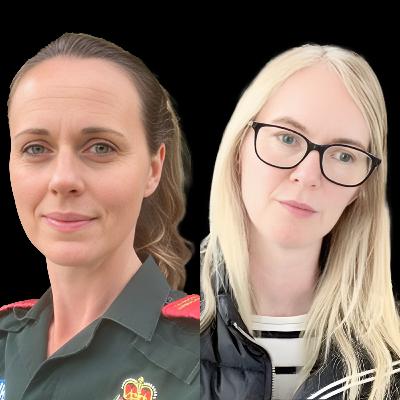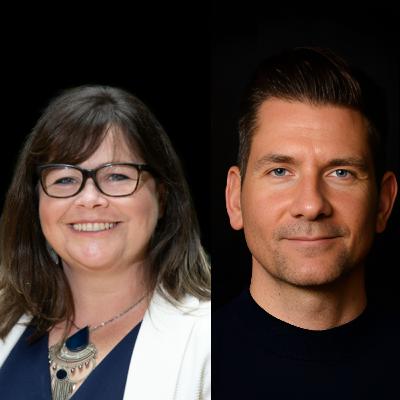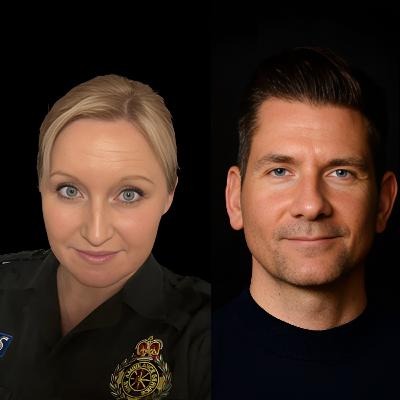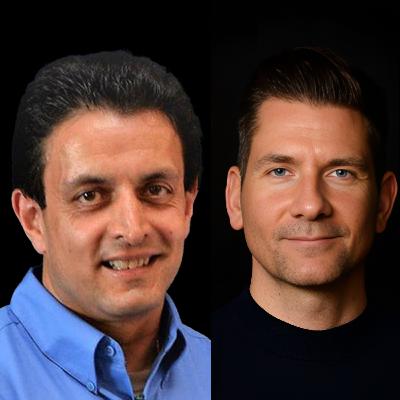Discover Pre-Hospital Care Podcast
Pre-Hospital Care Podcast

Pre-Hospital Care Podcast
Author: Eoin Walker
Subscribed: 271Played: 8,547Subscribe
Share
© Eoin Walker
Description
This podcast is designed to have engaging and inspirational conversations with some of the worlds leading experts in or relating to pre-hospital care. We hope you take a lot from the conversations both from a technical and non-technical perspective. Please rate and review the show as feedback helps ensure that the best information gets back to you throughout the project.
292 Episodes
Reverse
In this episode of the pre-hospital care podcast, we welcome Mark Faulkner, an advanced paramedic practitioner, to unpack the often daunting legal world that paramedics are exposed to.
You never know when that "nightmare job" or patient is going to appear and put you to the test. As clinicians, we should be always attempting to push our push our skills closer to perfection. In this episode, Ben Clarke shares his insights into deliberate practice, in-time learning, and meta-cognition.
In part 1 of our conversation with Ben Clarke (Assistant medical director of London Ambulance Service), we talk about leadership in pre-hospital care. What's more important - a good leader, or a good team willing to follow? Can you teach leadership or does it only come from experience? Can you be born a leader? How do you empower different types of staff on-scene? Join us as we explore the nature of leadership in pre-hospital care.
Have you ever been working, and all sense of time and self melts away, and you find yourself in perfect sync with what you’re doing? There’s a word for that. It’s called the Flow State.
In part 2 of our conversation with Dr Esther Murray, we explore Flow and how to put yourself in hyper productive mindsets more often using specific techniques anyone can implement in their work.
Dr Murray is a Senior Lecturer in Health Psychology and an expert in the subject of moral injury and self-care.
Update: Due to a technical hiccup, this episode was cut short by about 15 minutes during the first day of it's being published. It's now updated, so If you listened to it then and would like to catch the rest of this conversation, you can re-download the episode now. Thank you for your patience.
We're back with the second season of the Pre-Hospital Care podcast! Our first episode is a fascinating conversation with a cardiac arrest survivor and long friend of Eoin's, Zoe Hitchcock. They met when Zoe suffered a heart attack and Eoin happened to be sent out to treat her. Tune in for a fascinating and unique perspective on pre-hospital healthcare from the patient's perspective.
We end the first season of The Pre-Hospital Care Podcast by finishing up Eoin and Rich’s conversation with Dan Davis as they talk about dealing with the emotional trauma that is, unfortunately, part and parcel of pre-hospital care.
Thanks so much for being a part of this journey into healthcare podcasting. Keep an eye out for season 2! It’ll be out before you know it.
On this episode of Pre Hospital Care Podcast, Eoin and Rich continue their discussion with Nick Brown to tackle the non-technical skills necessary in controlling a tragic and highly emotional scene. In 96% of cardiac arrest cases, the patient doesn’t make it. When that happens, they are not the only patient.
Losing a loved one is traumatic and a genuine health risk over time. If we take our oath as clinicians seriously, therefore, we must be well prepared and skilled in not adding any further stress and trauma, as well as set up avenues for ongoing help and support.
Medics.Academy is dedicated to educating health professionals on every aspect of medicine, both technical and non-technical.
Go to www.Medics.Academy to browse our library of healthcare education.
On this episode of Pre Hospital Care Podcast, Eoin and Rich talk tackle perhaps the toughest topic in pre-hospital care. Delivering bad news to family members. Health professionals are not usually well taught about how to deliver the news of the death of a patient in a suitable and tactful way. This episode explains the four stages of delivering bad news, words to avoid, and how to remain professional but give support as much as you and your team can. Medics.Academy is dedicated to educating health professionals on every aspect of medicine, both technical and non-technical. Go to www.Medics.Academy to browse our large library of CPD-ready courses.
In this week’s podcast, we continue to discuss the crucial topic of pre-hospital airway management. How can we maximise the chances of patients with airway problems when time and circumstance are not on our side?
Eoin Walker and Rich McGirr walk through different procedures and both technical and non-technical aspects of managing the airway in the field.
For CPD-relevant content about pre-hospital care and many other healthcare fields, sign up at www.Medics.Academy.
Eoin Walker and Rich McGirr are back to discuss the ever growing evidence base and controversial topic of airway management in the pre-hospital setting.
How does the reality of managing this urgent, life-or-death part of the body differ from what is taught in the classroom? What are the essential steps in dealing with the prehospital airway? What are the pros and cons of each method?
Eoin Walker and Rich McGirr are back with special guest Martin Mist to talk more about the unique challenges that present themselves to paramedics when dealing with crises brought on by ingestion of illegal substances.
When will you need to resort to physical restraint? Why part of a paramedic’s job is to be a detective. How to do proper research on new. What the top 5 hard-hitter drugs are and key nuggets for dealing with each.
All this and more on the latest episode of the Pre-Hospital Care Podcast.
Paramedics are constantly in the middle of life and death situations. In the first full episode of the Medics.Academy Pre Hospital Care podcast, paramedics Owen Walker, Richard McGirr, and Martin Mist discuss Club Drugs and Non-Legal Highs and their effects on patients. As paramedics, they’re the first medical professionals to assess a situation before getting them to physicians at the hospital. They see the patients at their lowest point, suffering from anything from a cardiac arrest, a severe allergic reaction or a psychotic episode. Among many other topics, this episode covers the common and uncommon presentations of patients after drug overdoses and what paramedics look for and how to assess the situations.
This podcast is presented by Eoin Walker and Rich McGirr and is a Medics Academy podcast. The purpose of this podcast is to provide paramedics an easy-to-access set of resources and educational materials wherever they are. Feel free to take a look at the description in the footnotes of the podcast. Sign up to Medics Academy today to find out even more about what we do and just how much content we put out there for your education.
In this episode, we bring together a remarkable group of guests to discuss an often overlooked but incredibly important condition, Spontaneous Coronary Artery Dissection (SCAD). Joining us today are a SCAD survivor, the clinician who treated her, and an advocate working to raise awareness and improve patient outcomes.Together, they share their powerful and unique perspectives on what SCAD is, how it presents, and the challenges faced in recognising it, particularly in the pre-hospital environment, where diagnostic overshadowing can easily occur. We explore why SCAD is sometimes missed, how it differs from other cardiac events, and what clinicians can do to better support patients who may be experiencing it.Most importantly, we hear the real lived experience of surviving SCAD, the uncertainty, recovery, and the crucial role of awareness and advocacy in improving care pathways.This conversation is both educational and deeply human, offering vital insights for pre-hospital professionals, clinicians, and anyone interested in improving outcomes for patients with this rare and often misunderstood condition. Tune in to hear their stories, their expertise, and how we can all play a part in recognising and responding to SCAD more effectively. You can find more on SCAD here: https://beatscad.org.uk/SCAD-for-Patients/What-is-SCAD
In this episode, we explore “Leaving Room for Rougher Edges in EMS” by Radu Venter, a powerful reflection on perfectionism in paramedicine. Radu is a Flight Paramedic based in Canada. He challenges the unrealistic pursuit of flawless performance in an unpredictable, high-pressure environment and asks when “good enough” should truly be enough. We discuss how flexibility, honesty, and self-compassion can replace self-criticism, and how embracing imperfection can actually strengthen team culture and patient care. Join us as we explore the realities of being human in emergency medicine.Read the full article here: https://substack.com/home/post/p-116881333This episode is sponsored by PAX: The gold standard in emergency response bags.When you’re working under pressure, your kit needs to be dependable, tough, and intuitive. That’s exactly what you get with PAX. Every bag is handcrafted by expert tailors who understand the demands of pre-hospital care. From the high-tech, skin-friendly, and environmentally responsible materials to the cutting-edge welding process that reduces seams and makes cleaning easier, PAX puts performance first. They’ve partnered with 3M to perfect reflective surfaces for better visibility, and the bright grey interior makes finding gear fast and effortless, even in low light. With over 200 designs, PAX bags are made to suit your role, needs, and environment. And thanks to their modular system, many bags work seamlessly together, no matter the setup.PAX doesn’t chase trends. Their designs stay consistent, so once you know one, you know them all. And if your bag ever takes a beating? Their in-house repair team will bring it back to life.PAX – built to perform, made to last.Learn more at https://www.pax-bags.com/en/
In this episode, we delve into one of the most universal and often misunderstood experiences: grief. Whether it's supporting families after a sudden loss, witnessing trauma firsthand, or coping with personal emotional impacts, grief is an ever-present companion in pre-hospital care.Joining us is Liz Gleeson, a highly respected psychotherapist, educator, and specialist in grief. Liz is the creator of the internationally acclaimed Shapes of Grief podcast and training program, and she lectures widely on grief and loss. With a background in somatic therapies and a PhD in progress on Forest Therapy and bereavement, Liz brings a compassionate, embodied, and deeply informed perspective to the conversation.We’ll explore key models of grief, including Kübler-Ross’s Five Stages, the Dual Process Model, Attachment Theory, and Continuing Bonds. We’ll also discuss the art of listening, cultural competence, caregiver compassion and burnout, and ethical challenges in grief support. This conversation is for anyone navigating the emotional complexities of pre-hospital work and seeking ways to respond with presence, professionalism, and care in moments of profound human vulnerability. You can find Liz's podcast "Shapes of Grief' podcast here: https://podcasts.apple.com/gb/podcast/shapes-of-grief/id1450116449This is Liz's website, where further training on grief can be found: https://shapesofgrief.com/This episode is sponsored by PAX: The gold standard in emergency response bags.When you’re working under pressure, your kit needs to be dependable, tough, and intuitive. That’s exactly what you get with PAX. Every bag is handcrafted by expert tailors who understand the demands of pre-hospital care. From the high-tech, skin-friendly, and environmentally responsible materials to the cutting-edge welding process that reduces seams and makes cleaning easier, PAX puts performance first. They’ve partnered with 3M to perfect reflective surfaces for better visibility, and the bright grey interior makes finding gear fast and effortless, even in low light. With over 200 designs, PAX bags are made to suit your role, needs, and environment. And thanks to their modular system, many bags work seamlessly together, no matter the setup.PAX doesn’t chase trends. Their designs stay consistent, so once you know one, you know them all. And if your bag ever takes a beating? Their in-house repair team will bring it back to life. PAX – built to perform, made to last.Learn more at https://www.pax-bags.com/en/
In this audio blog, Carl Betts employs the analogy of a traditional dry stone wall to explain the principles of healthcare improvement. Carl suggests that just as these walls rely on the careful placement and interconnection of unique stones without mortar, healthcare systems depend on the relationships between processes, people, and policies. A key point is that a single failure or "slippage" in either the wall or the system can cause a cascading disruption. The blog advocates for a thoughtful approach to improvement, stressing that rebuilding requires assessment and learning rather than simply replacing components. Ultimately, the source frames the dry stone wall as a blueprint for success in healthcare, emphasising connection, resilience, and the value of incremental progress.This episode is sponsored by PAX: The gold standard in emergency response bags.When you’re working under pressure, your kit needs to be dependable, tough, and intuitive. That’s exactly what you get with PAX. Every bag is handcrafted by expert tailors who understand the demands of pre-hospital care. From the high-tech, skin-friendly, and environmentally responsible materials to the cutting-edge welding process that reduces seams and makes cleaning easier, PAX puts performance first. They’ve partnered with 3M to perfect reflective surfaces for better visibility, and the bright grey interior makes finding gear fast and effortless, even in low light. With over 200 designs, PAX bags are made to suit your role, needs, and environment. And thanks to their modular system, many bags work seamlessly together, no matter the setup.PAX doesn’t chase trends. Their designs stay consistent, so once you know one, you know them all. And if your bag ever takes a beating? Their in-house repair team will bring it back to life.PAX – built to perform, made to last.Learn more at https://www.pax-bags.com/en/
In this episode, we’re diving into the journey of Zoe Boswell, a dedicated paramedic, mother, and community volunteer with the Great Western Air Ambulance Charity (GWAAC). Zoe brings over a decade of experience as a road paramedic, all while balancing the demands of family life and volunteering with the GWAAC Heartstarters program.Zoe’s story is a powerful example of resilience, progression, and passion within the pre-hospital care world. Her ability to manage complex clinical challenges on scene, train at an advanced level, and still give back to the community through CPR education speaks volumes about her commitment to the profession.In our conversation, we explore her motivations, her aspirations from road to critical care paramedic, the emotional impact of high-acuity cases, and the unique perspective she brings as a parent working on the front line. Whether you’re a student paramedic, a seasoned clinician, or just curious about the realities of life on the HEMS pathway, Zoe’s insights are both inspiring and deeply grounded in the realities of modern pre-hospital care. Let’s dive into this episode with Zoe Boswell.This episode is brought to you by IndieBase.IndieBase is the smart, simple, and budget-friendly Electronic Patient Record (EPR) system designed specifically for the demands of HEMS and pre-hospital care. Whether you're responding solo, working within a flexible team, or managing care across a larger organisation, IndieBase is built to support you. It runs seamlessly on laptops, tablets, or smartphones, and crucially, it operates offline, ensuring you can document care wherever you are, even in the most remote environments. Developed from the proven platform of HEMSbase by Medic One Systems, IndieBase offers a familiar, intuitive interface with the rock-solid reliability clinicians need. It's ready for everything from festival medical cover to high-acuity critical care transfers.Key features include full integration with all major pre-hospital monitors, case review, and clinical governance modules, making it an ideal solution for teams preparing for CQC registration. A patient feedback module also helps drive service improvement and meaningful engagement. For clinicians working across multiple organisations, IndieBase provides a personal logbook that combines your data and links directly with your existing HEMSbase logbook.IndieBase EPR made simple, wherever you are.Find out more at https://indiebase.net/This episode is sponsored by PAX: The gold standard in emergency response bags.When you’re working under pressure, your kit needs to be dependable, tough, and intuitive. That’s exactly what you get with PAX. Every bag is handcrafted by expert tailors who understand the demands of pre-hospital care. From the high-tech, skin-friendly, and environmentally responsible materials to the cutting-edge welding process that reduces seams and makes cleaning easier, PAX puts performance first. They’ve partnered with 3M to perfect reflective surfaces for better visibility, and the bright grey interior makes finding gear fast and effortless, even in low light. With over 200 designs, PAX bags are made to suit your role, needs, and environment. And thanks to their modular system, many bags work seamlessly together, no matter the setup.PAX doesn’t chase trends. Their designs stay consistent, so once you know one, you know them all. And if your bag ever takes a beating? Their in-house repair team will bring it back to life.PAX – built to perform, made to last.Learn more at https://www.pax-bags.com/en/
This blog podcast unpacks an article titled "Beyond the Summit: Why Human Factors and Crew Resource Management Matter in Expeditions," written by Ryan Atkinson on 22 September 2025. Ryan asserts that while competence and experience are crucial for expeditions, human factors (HF), the psychological, social, and organisational influences on performance are often the difference between success and disaster. Ryan highlights that stressors like fatigue, ambition, and cognitive biases like Groupthink and Social Proof amplify risk in extreme environments, citing the Tunnel Creek avalanche as an example. To mitigate these risks, the author advocates for the adoption of Crew Resource Management (CRM), an aviation-inspired safety framework focusing on practices like closed-loop communication, checklists, shared situational awareness, and flattened authority gradients. Ultimately, successful expedition teams must evolve from fragile flash teams into structured evolved teams that prioritise collective safety through understanding human limitations and working together. You can read Ryan's blog here: https://ryanatkinson.tv/2025/09/22/beyond-the-summit-why-human-factors-and-crew-resource-management-matter-in-expeditions/
Today, we're diving into one of the most challenging scenarios any EMS provider faces: paediatric cardiac arrest. The figures are challenging, with only a 4.9% survival rate for infants and neurologically intact survival rates as low as 1-4% nationally. These calls have long been considered to have poor outcomes.But what if I told you that one fire department completely rewrote the playbook and achieved neurologically intact survival rates of 46%? What if they did it by breaking conventional rules and staying on scene longer, not shorter?Today, we're joined by Medical Director Paul Banerjee from Polk County Fire Rescue in Florida, where they've transformed paediatric cardiac arrest outcomes through changing the protocols that challenge everything we thought we knew about pre-hospital resuscitation. From their "NO/NO/GO" dispatch system to permissive hypercarbia post-intubation, from mechanical CPR to aggressive on-scene airway management, Polk County has proven that with the right approach, we can dramatically improve outcomes in this patient cohort. *** Please note, this podcast is for information purposes only. You must stay within your scope and remit of practice and service SOPs at all times ***This podcast is sponsored by BlueRoomXRWhen lives are on the line, training needs to feel real. That’s where BlueRoom comes in, the world’s most advanced mixed-reality training simulator. No bulky controllers or gimmicks, just your hands, your kit, and a level of immersion that places you straight into the mission. From the cockpit of a Blackhawk to the chaos of a combat zone, BlueRoom delivers pressure-filled environments without real-world risk.With Mission Control, instructors can shift conditions, change patient vitals, and dial up intensity instantly. And thanks to Garmin biometrics, the system even responds to your physiology in real time, adapting as your stress and heart rate rise.Born in Australia and now trusted across five continents, BlueRoom is redefining readiness for military, medical, and frontline professionals. This isn’t the future of training; it’s training transformed.👉 For truly immersive training, step inside the BlueRoom. Visit BlueRoomXR.com to request your demo today.









